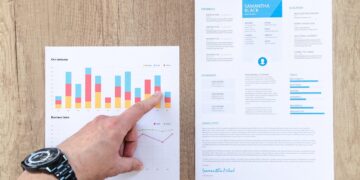Mastering Early Retirement: Strategic Planning for Financial Freedom
Thinking of hanging up your work boots earlier than the norm and settling into an early retirement filled with leisure and personal pursuits? Achieving this goal isn’t just a matter of wishful thinking, but involves meticulous planning and strategic financial management. In this comprehensive guide, we’ll delve into the essential steps and strategies that can help you master early retirement, ensuring you achieve financial freedom and a secure, enjoyable life post-career.
Understanding the Financial Demands of Early Retirement
Early retirement requires more than just saving enough money. It demands a deep understanding of your financial needs, which can vary widely depending on your lifestyle, location, and personal goals. So, how can you prepare financially for decades of living without a regular income?
First, calculate your expected costs, considering both essential expenses like housing and healthcare, and discretionary spending, such as travel and hobbies. Don’t forget to account for inflation, which can significantly impact your purchasing power over time. Financial experts often recommend aiming to replace at least 70-80% of your pre-retirement income to maintain a comfortable lifestyle.
Creating a Robust Savings Plan
The foundation of early retirement planning is a robust savings strategy. Start by maximizing contributions to retirement accounts such as IRAs and 401(k)s, particularly if they offer employer matches. Also, explore other investment options like stocks, bonds, and real estate to diversify your income streams.
One effective strategy is the 4% rule, which suggests you can safely withdraw 4% of your retirement fund each year without depleting it. Planning to retire early increases the period you need your savings to last, making it crucial to adapt this rule based on your specific financial situation and retirement age.
Investing Wisely for Long-Term Growth
Your investment strategy is pivotal in achieving early retirement. To ensure long-term growth, consider a mix of assets. While equities may offer higher returns, they come with increased volatility. Balancing them with bonds or real estate can provide stability and income.
Remember, the key to successful investing isn’t just about choosing the right assets but also about timing. The earlier you start, the more you can benefit from compound interest, potentially turning modest savings into significant sums over several decades.
Minimizing Taxes and Fees
Taxes and investment fees can erode your earnings drastically. Look for tax-efficient investment options, and consider consulting a tax advisor to optimize your retirement strategy. For instance, Roth IRAs offer tax-free growth and withdrawals, which can be particularly advantageous for those expecting to be in a higher tax bracket in retirement.
Additionally, be vigilant about the fees associated with your investments. Opt for low-cost index funds or ETFs where possible, as high management fees can consume a significant portion of your returns over time.
Preparing for Healthcare Costs
Healthcare is often one of the most significant expenses in retirement. Early retirees need to bridge the gap before Medicare kicks in at age 65. Consider health savings accounts (HSAs) for tax-advantaged savings, and shop around for the best private insurance plans. Regular health check-ups and maintaining a healthy lifestyle can also help minimize healthcare costs in the long run.
Creating Multiple Income Streams
Depending on savings alone may not be sufficient for a secure early retirement. Creating multiple income streams can provide additional security and flexibility. Consider part-time work, freelance projects, or starting a small business that aligns with your passions and skills. Passive income sources, such as rental properties or dividend-yielding stocks, can also contribute to your financial stability.
Maintaining Financial Flexibility
Financial situations can change due to market fluctuations, unexpected expenses, or personal changes. Maintain flexibility in your financial planning by having a substantial emergency fund and being willing to adjust your withdrawal rates or cut back on discretionary spending when necessary.
Planning for the Non-Financial Aspects of Retirement
Retirement isn’t just about financial planning—it’s also a significant lifestyle change. Consider the non-financial aspects such as how you’ll spend your time, maintain social connections, and pursue personal growth. Some find volunteering, pursuing hobbies, or traveling can lead to fulfilling retirement years.
Conclusion
Mastering early retirement requires thorough planning and a proactive approach to financial management. By understanding your financial needs, investing wisely, creating multiple income streams, and preparing for the unexpected, you can secure your financial future and enjoy the freedom that early retirement brings. Remember, it’s never too early or too late to start planning for retirement—the key is to start now and adjust as needed based on your personal and financial evolution.
With diligent planning and strategic action, your dream of early retirement can become a sustainable and rewarding reality.



























































